“Identity Politics” and Transgender Equality
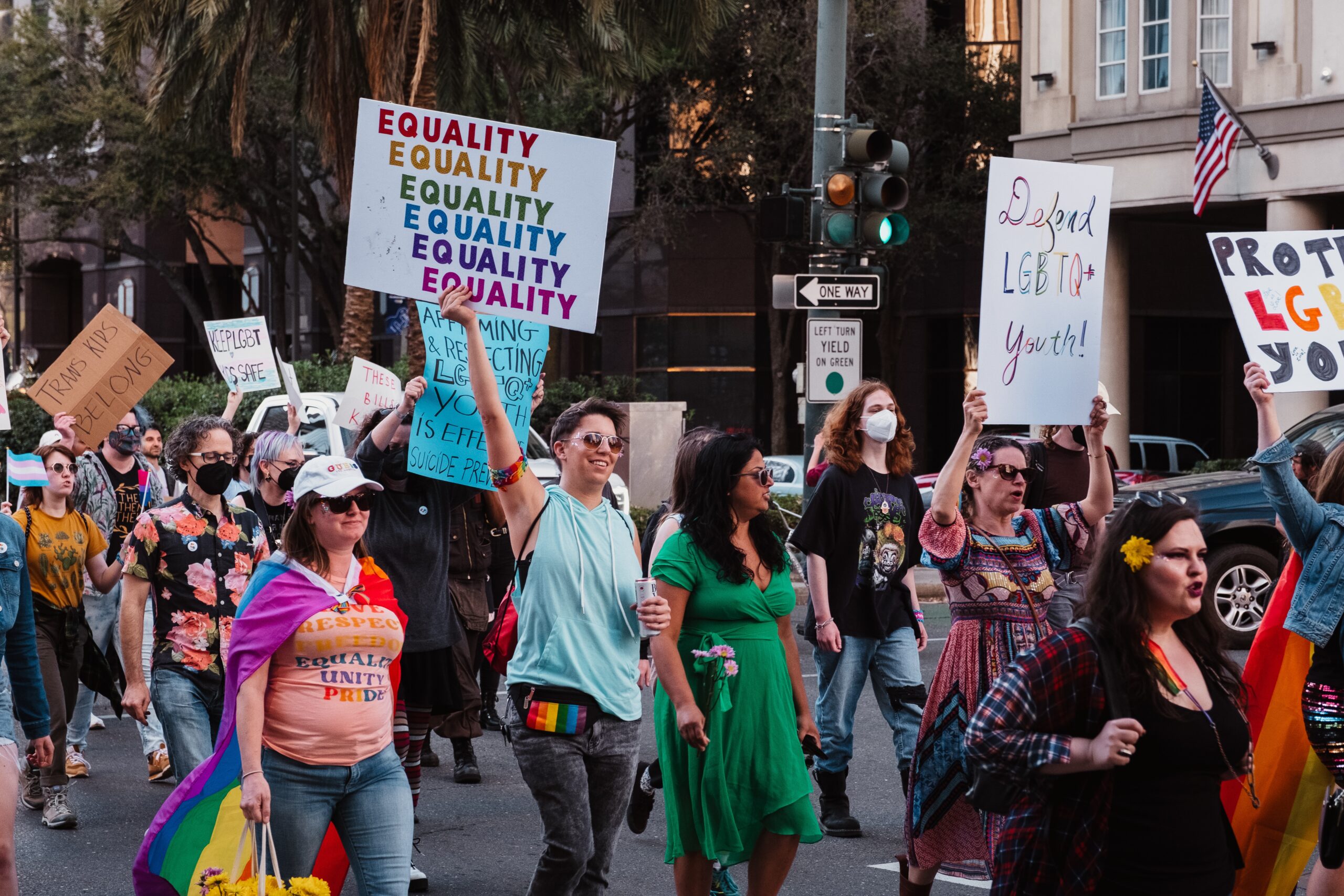
It is standard for Public Religion Research Institute, along with other survey and polling organizations, to track trends in American attitudes by key demographics: religious affiliation, political party, age, gender, and race. In addition to these traditional measures, PRRI’s recent Gender and Politics survey also asks respondents about other identity labels: whether they identify as a feminist, Black Lives Matter supporter, LGBTQ+ or ally, or Christian nationalist.
These identity labels have salience for many respondents. The Christian nationalist category has the least adherents (13% of survey respondents said the label describes them), and Black Lives Matter supporter and feminist have the most (46% said these labels describe them). Fewer identified as LGBTQ+ or ally.
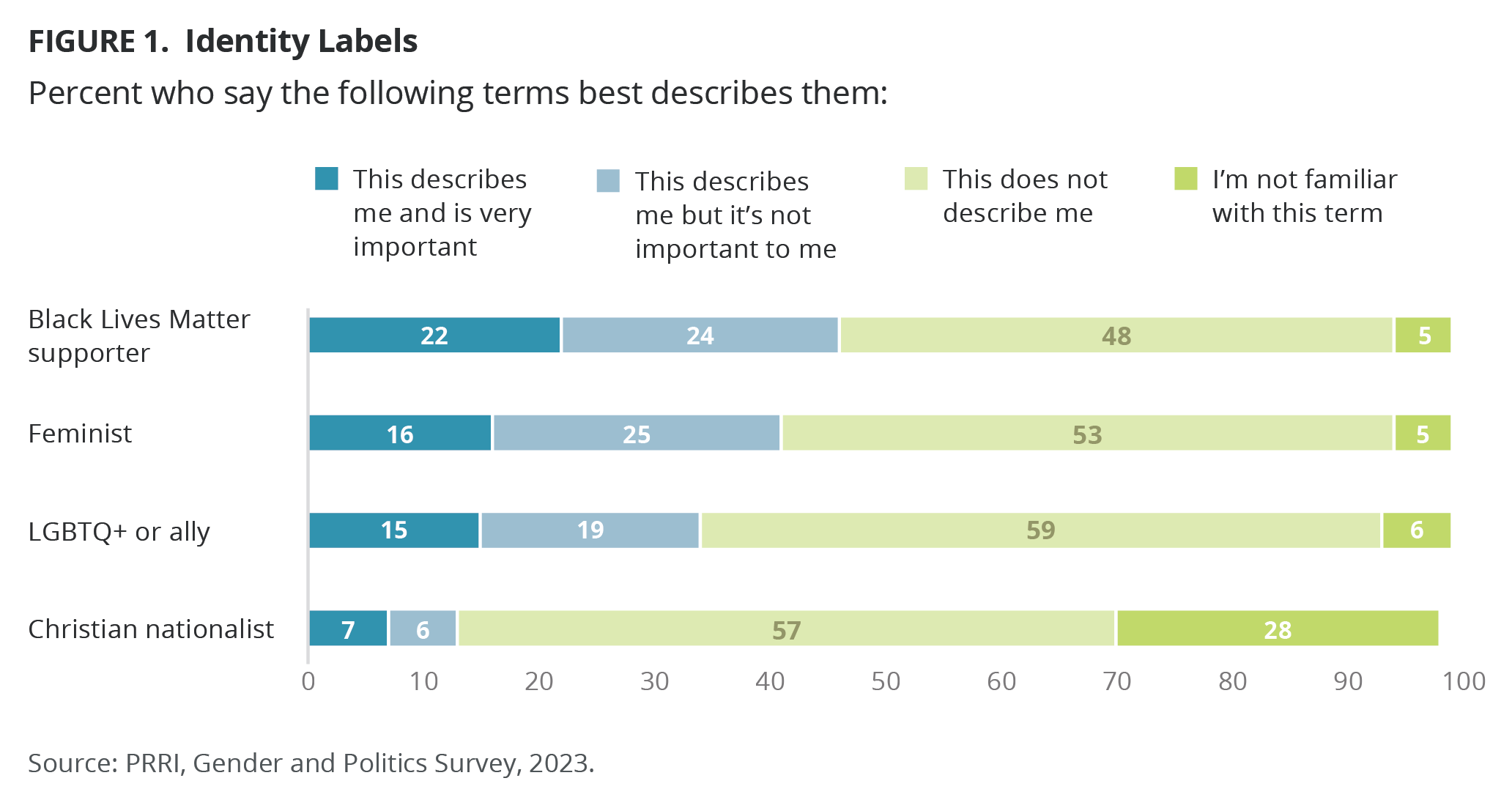
For those who say these identity labels are very important to them, PRRI’s survey data finds patterns when it comes to their views on gender identity and comfort with transgender people. As expected, those who identify as “LGBTQ+ or ally” and say that this label is very important to them are the most likely to believe that there is a range of gender identities and express comfort with using gender-neutral pronouns and having transgender friends. But other progressive groups, including feminists and Black Lives Matter supporters, are also supportive of fluid gender categories and comfortable with gender-neutral pronouns and transgender friends.
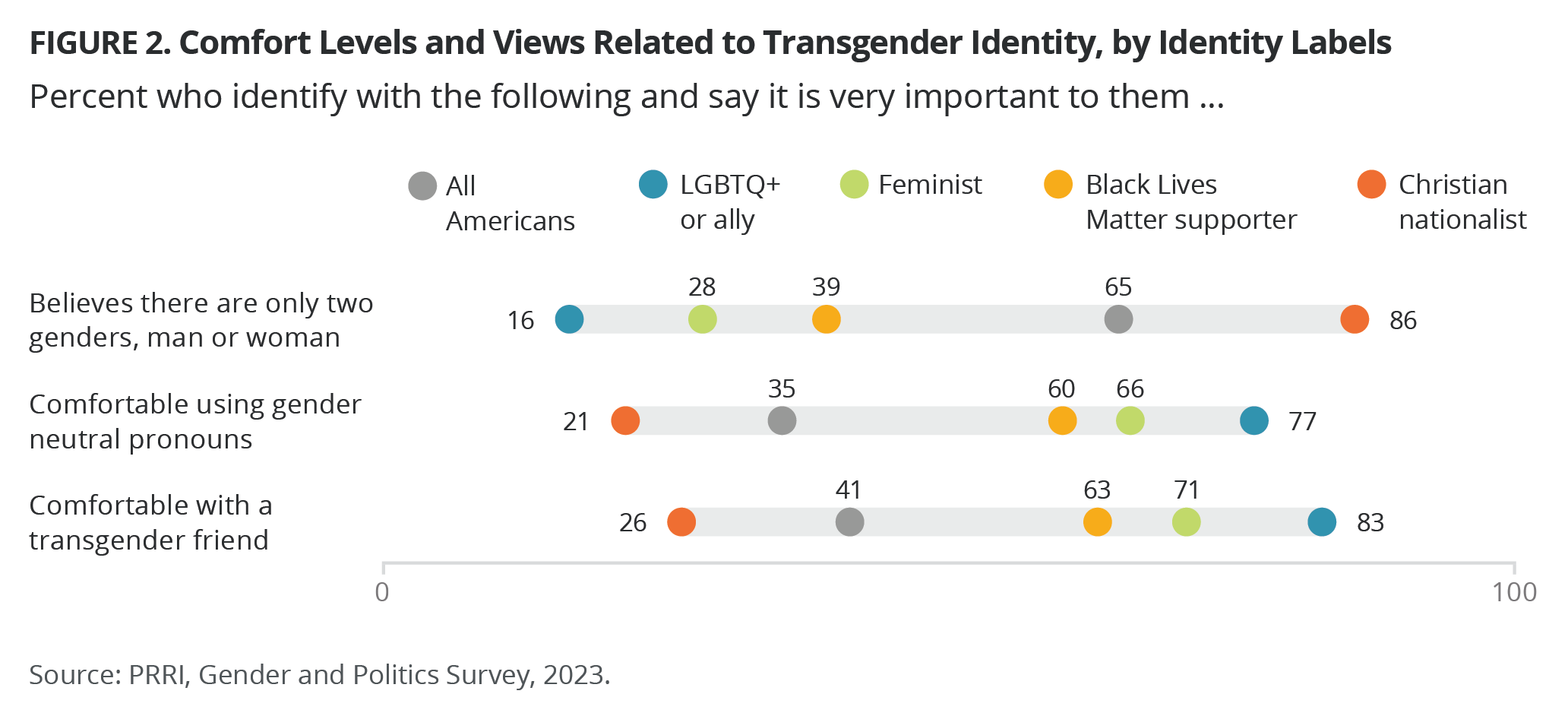
When it comes to political debates over transgender equality, this survey reveals similar trends. Those who identify as Christian nationalists are the most likely to agree that people are being peer pressured into being transgender, to believe transgender identity should not be discussed in K-12 schools, and to support laws that prevent parents from allowing their children to receive medical care for gender transition. People who identify as LGBTQ+ or allies are the least likely to hold these views, followed by feminists. Black Lives Matter supporters express slightly more conservative views on these topics but are overall supportive of transgender equality. The majority of Black Lives Matter supporters do not believe young people are being peer pressured into being transgender and do believe that transgender identity should be discussed at some point in K-12 school. Only 22% support laws that prevent parents from allowing their children to receive gender-affirming medical care. For all who claim membership in these progressive groups, their attitudes are much more supportive of transgender people and transgender rights than Americans overall.
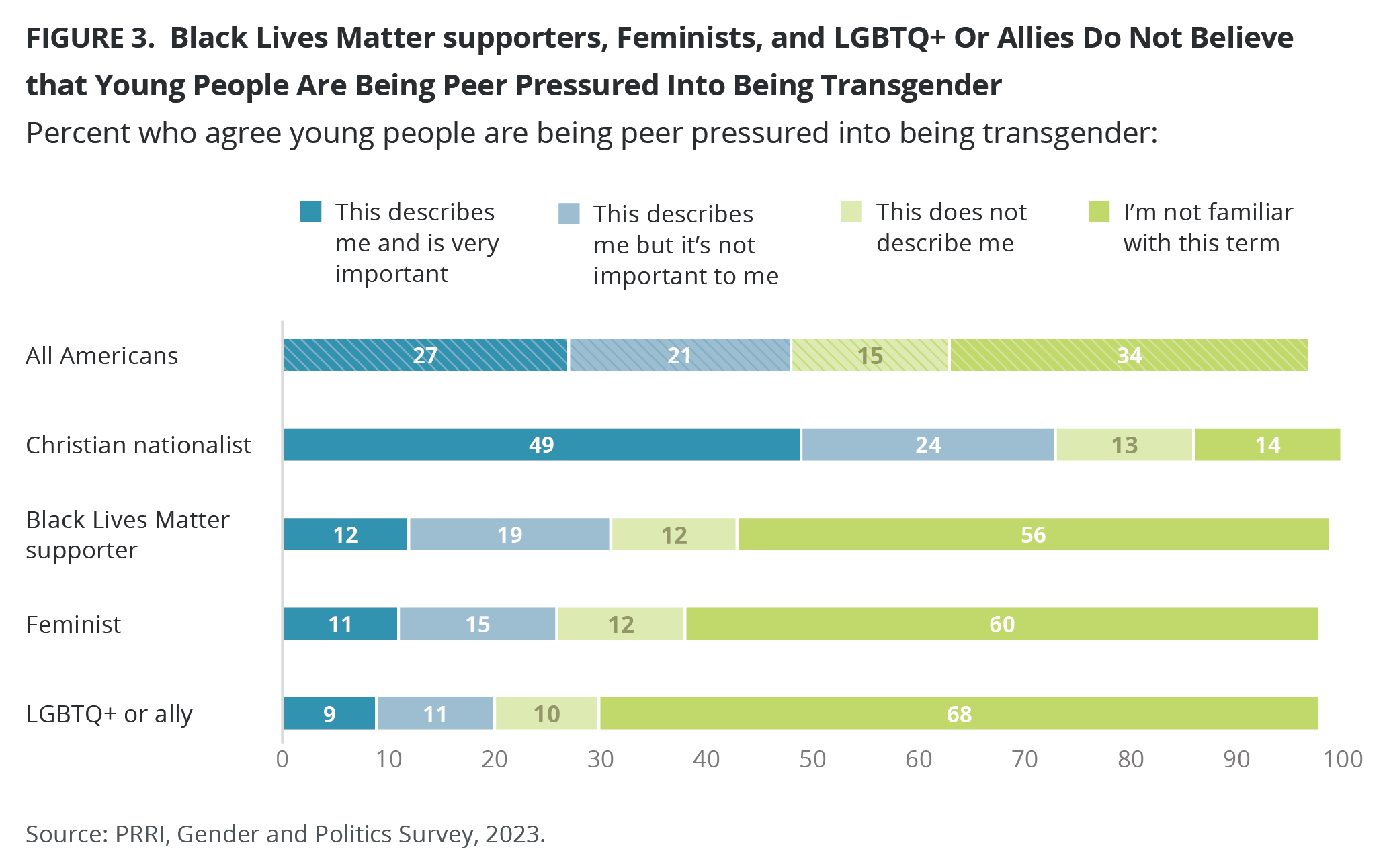
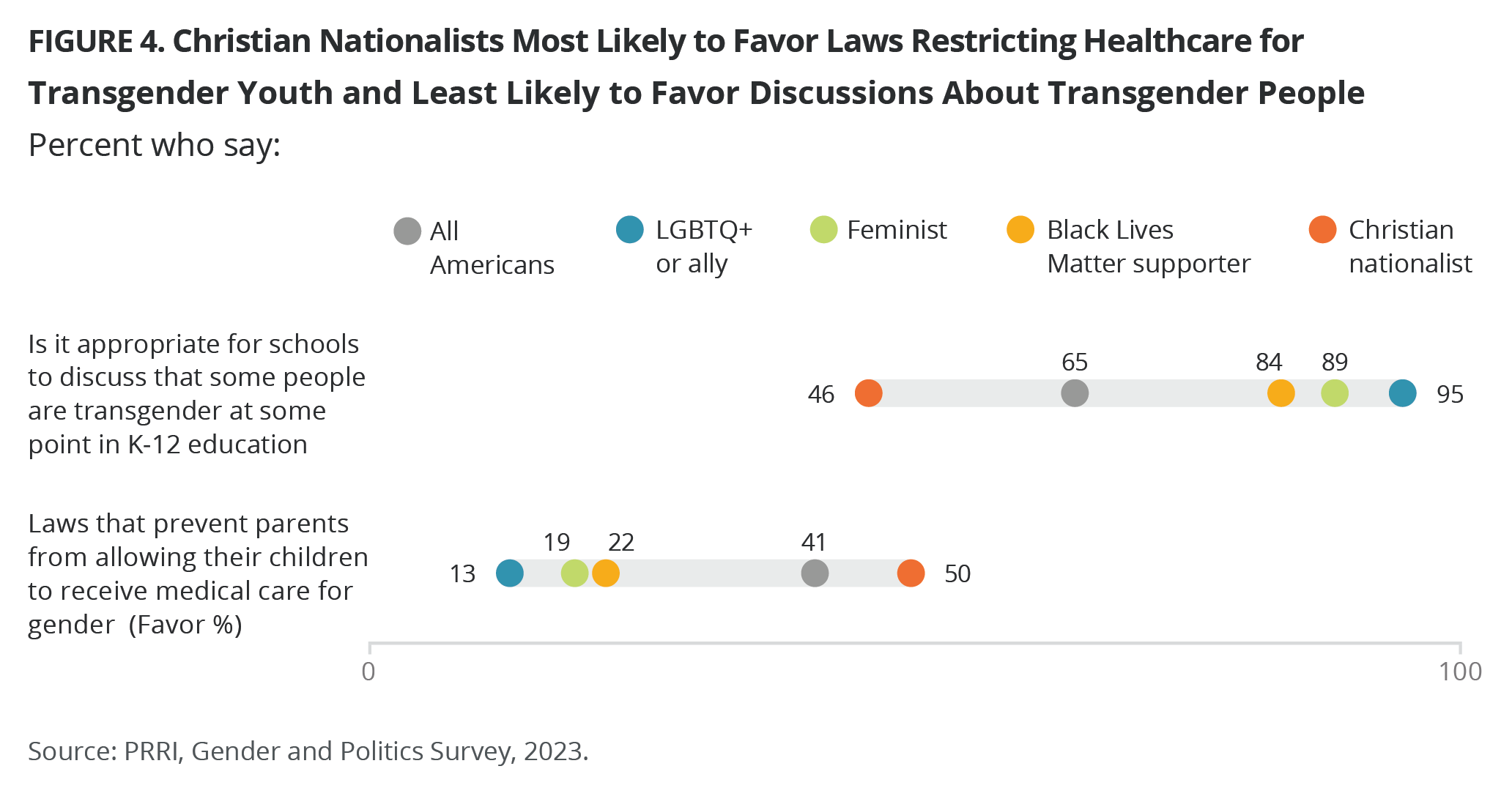
PRRI’s new survey data reveals the shared values among feminists, Black Lives Matter supporters, and LGBTQ+ people and allies when it comes to transgender equality; the rights of transgender people are widely endorsed by progressive groups beyond the LGBTQ+ community. Furthermore, self-identified Christian nationalists are unique in their conservatism when compared to Americans as a whole.

